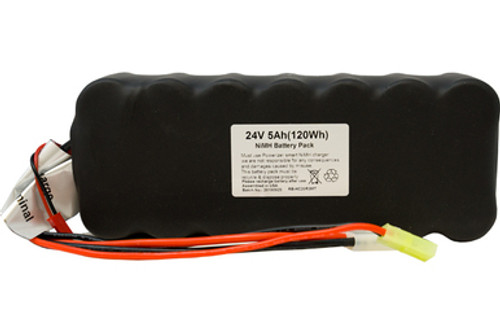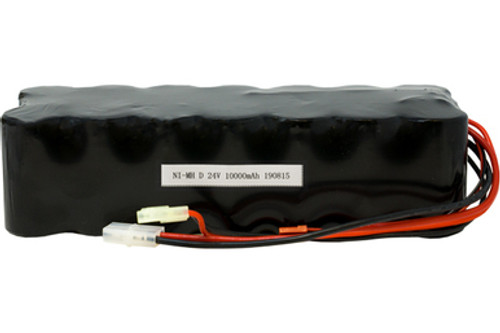24 Volt
24 VOLT BATTERIES
In the world of portable power solutions, 24-volt battery packs have become indispensable for a wide range of applications, from electric vehicles to renewable energy storage systems. Among the various options available, two types stand out: Nickel Metal Hydride (NiMH) and Lithium Iron Phosphate (LiFePO4) batteries.
Understanding NiMH Battery Packs
NiMH battery packs have been a popular choice for many years, offering a good balance of performance, reliability, and cost-effectiveness. These batteries use a nickel-based chemistry and are known for their high energy density, making them suitable for applications where space is limited. With a nominal voltage of 24 volts, NiMH battery packs provide a stable power supply for a variety of devices.
Advantages of NiMH Battery Packs:
Safety: NiMH batteries are relatively safe compared to other chemistries, with a lower risk of thermal runaway or fire.
Environmentally Friendly: They contain no toxic materials like cadmium or mercury, making them more environmentally friendly.
Cost-Effective: NiMH batteries are generally more affordable than lithium-based alternatives, making them a cost-effective solution for many applications.
Wide Operating Temperature Range: NiMH batteries perform well across a wide range of temperatures, making them suitable for outdoor applications.
Applications of NiMH Battery Packs:
Portable power tools
Electric bicycles
Backup power systems
Emergency lighting
Remote monitoring devices
Introducing LiFePO4 Battery Packs
LiFePO4 battery packs represent the next generation of rechargeable batteries, offering improved performance and durability compared to traditional lithium-ion batteries. With a nominal voltage of 24 volts and a capacity of 10 ampere-hours (240 watt-hours), LiFePO4 packs provide a higher energy density and longer cycle life, making them ideal for demanding applications.
Advantages of LiFePO4 Battery Packs:
High Energy Density: LiFePO4 batteries offer a higher energy density compared to NiMH batteries, providing more power in a smaller and lighter package.
Longer Cycle Life: LiFePO4 batteries can withstand a significantly higher number of charge-discharge cycles, making them more durable and cost-effective over the long term.
Fast Charging: LiFePO4 batteries support fast charging, allowing for quicker recharge times compared to NiMH batteries.
High Discharge Rates: They can deliver high discharge currents without experiencing a significant voltage drop, making them suitable for high-power applications.
Applications of LiFePO4 Battery Packs:
Electric vehicles
Solar energy storage
Marine propulsion systems
Uninterruptible power supplies (UPS)
Off-grid power systems
Choosing the Right Battery Pack
When selecting between NiMH and LiFePO4 battery packs, it's essential to consider the specific requirements of your application. If you prioritize cost-effectiveness and safety in moderate-power applications, NiMH batteries may be the right choice. However, for high-power applications that demand superior performance, longevity, and energy efficiency, LiFePO4 batteries offer a compelling solution.
24-volt battery packs play a vital role in powering a wide range of devices and systems, offering diverse options to suit various needs. Whether you opt for the reliability and affordability of NiMH batteries or the performance and longevity of LiFePO4 batteries, you can rest assured that you're investing in a dependable power source for your applications.




